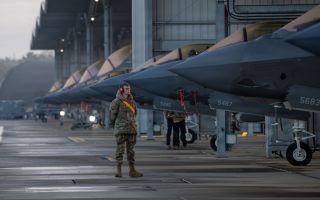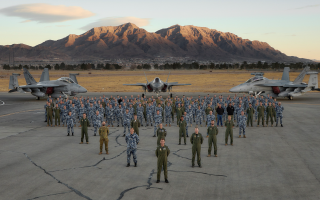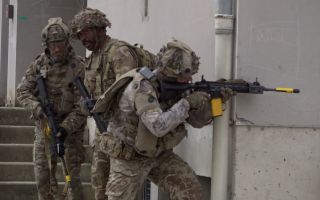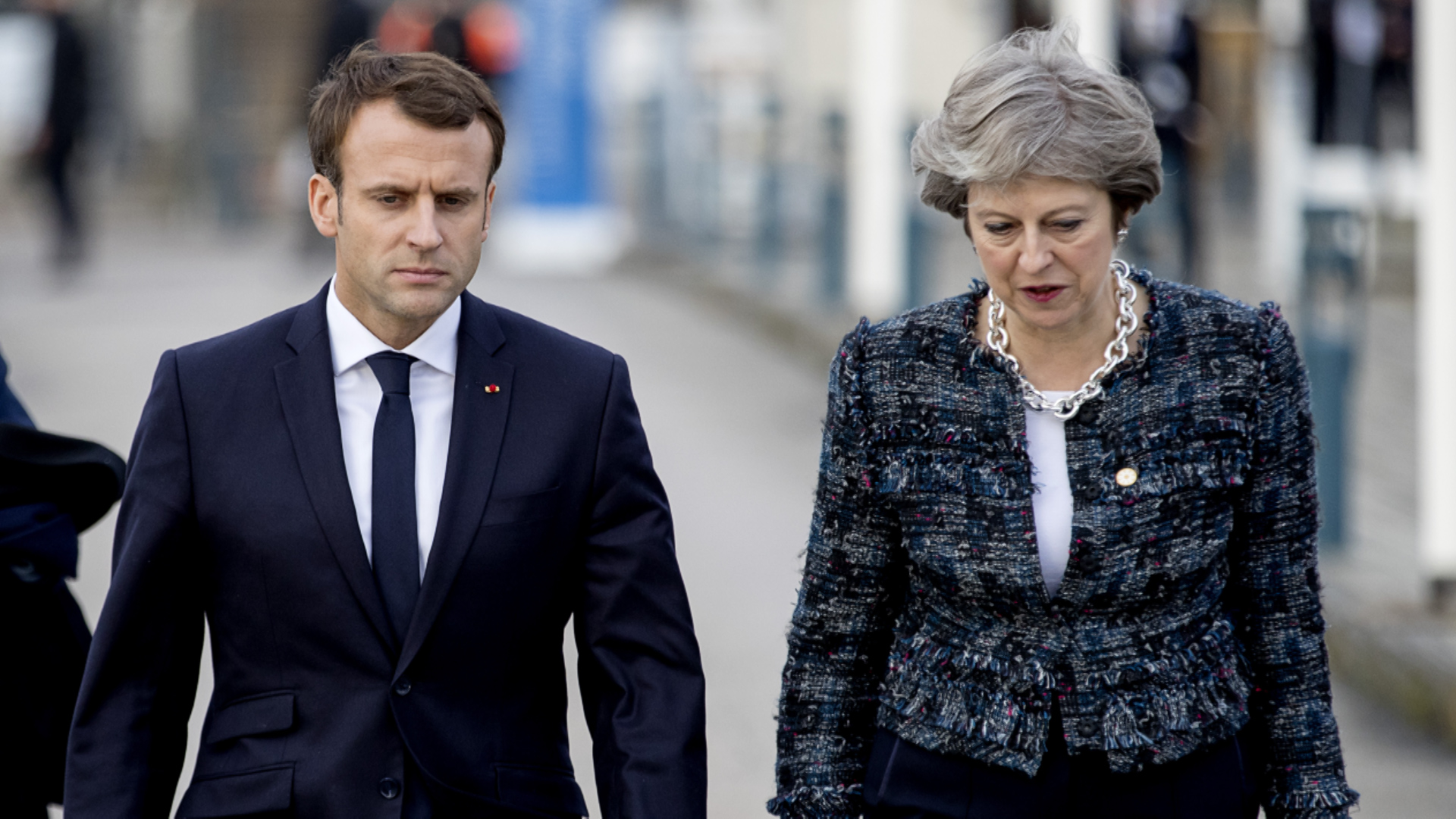
PM Promises More Funding For UK Border Controls In France

Cover picture: French President Emmanuel Macron and Prime Minister Theresa May at the EU Social Summit for Fair Jobs and Growth in Gothenburg on 17th November 2017 (Courtesy of PA/Adam Ihse).
Theresa May is to pledge tens of millions of pounds to strengthen Britain's border controls in France as she hosts summit talks with President Emmanuel Macron.
Officials said the £44.5 million cash injection would go towards fencing, CCTV and detection technology in Calais and other ports along the Channel.
The move follows reports that Mr Macron has been pressing for Britain to increase its financial contribution as well as a commitment to take more refugees ahead of his first visit to the UK as president.
How can there be UK border controls in France?
In 2003 the two countries signed a bilateral accord known as Le Touquet agreement allowing British immigration officers to carry out checks in France, while their French counterparts do the same on UK soil. The arrangements are referred to as "juxtaposed" controls.
Where are the checkpoints?
Border Force operates at a number of locations including at Calais and Dunkirk ports, the Eurotunnel terminal at Coquelles and Paris Gare du Nord and Brussels Midi stations.
Why is it needed?
British officials say the new funding will build on previous measures which have helped reduce the number of illegal attempts to enter the UK. Figures show there were more than 80,000 attempts in 2015 - falling to just over 30,000 last year.
A Government spokeswoman said: "This is about investing in and enhancing the security of the UK border.
"Just as we invest in our borders around the rest of the UK, it is only right that we constantly monitor whether there is more we can be doing at the UK border controls in France and Belgium to ensure they are as secure as possible."
How much has Britain already provided?
UK funding towards security measures is thought to have topped £100 million in the last three years. The latest cash injection would bring the total to around the £150 million mark.
Increasing co-operation on defence and counter-terrorism will be high on the agenda at an event which will see the first meeting together of the heads of the two countries' main intelligence agencies.
The heads of MI5, MI6, GCHQ and France's DGSE and DGSI will discuss how they can work together to counter threats such as the targeting of concert venues like Manchester Arena and the Bataclan in Paris, and terrorists using the internet as a "safe space".
Britain will also commit to participating in Mr Macron's "European intervention initiative," which officials do not regard as a European army but a plan to enhance co-ordination of existing armed forces.
Three RAF Chinook helicopters and around 50 non-combat troops will be deployed to Mali to provide logistical support to French forces attempting to stabilise the Sahel region of Africa where extremists like Islamic State and al Qaida have gained a foothold.
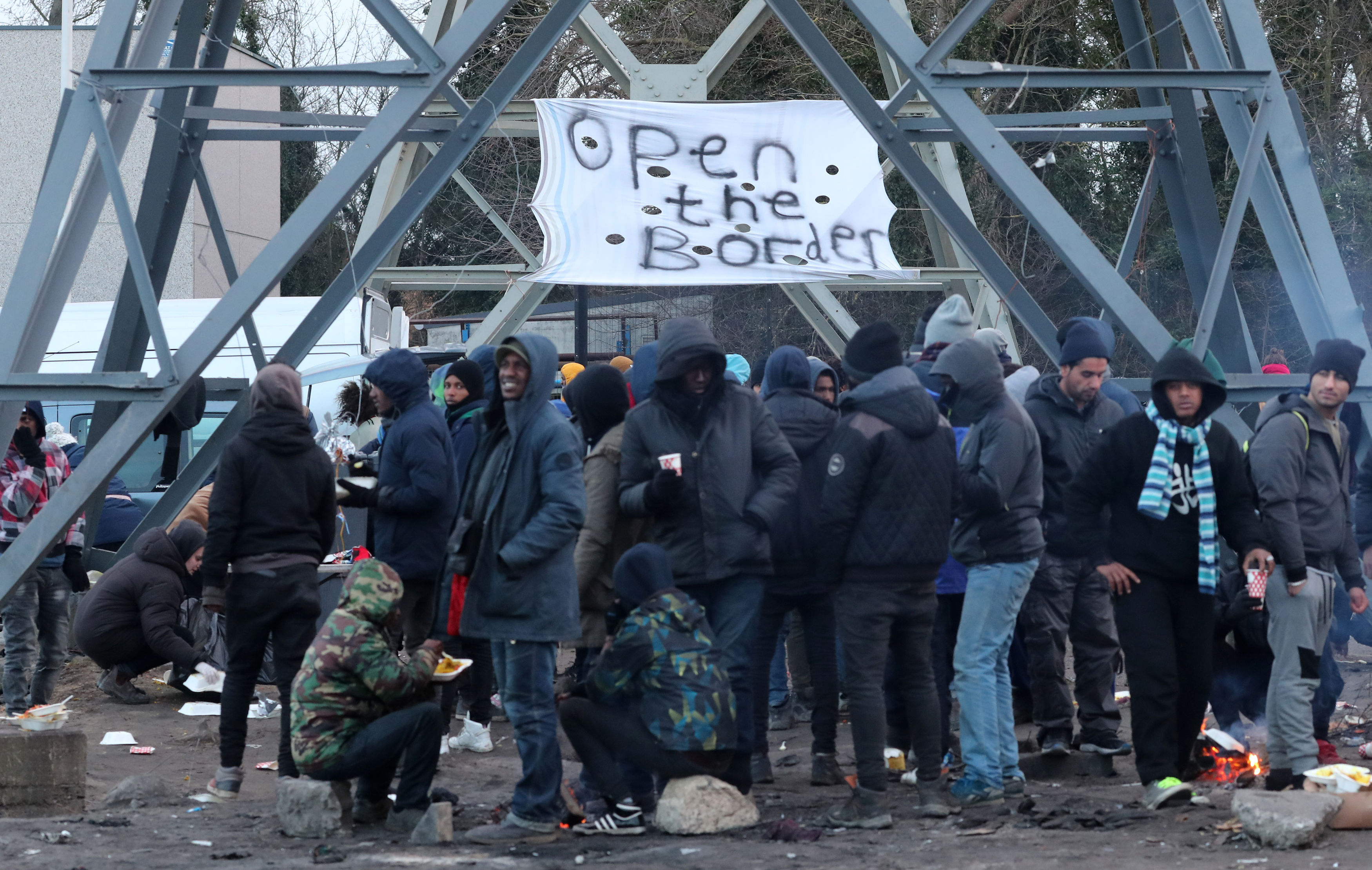
UK funding for security in the region is thought to have topped £100 million over the last three years, while more than 750 children have been transferred to Britain since the Jungle was shut down.
British officials said the new UK funding would build on previous security work in the area, pointing to figures showing illegal attempts to enter the UK fell from more than 80,000 in 2015 to just over 30,000 last year.
Up to 7,000 men, women and children lived in the Jungle in Calais before the site was cleared in 2016.
But hundreds of asylum seekers hoping to cross the Channel remain in the area, more than a year after authorities dismantled the sprawling site.
Officials said the new funding will also help relocate migrants away from Channel ports to stop another similar camp forming.
Speaking ahead of the meeting, Mrs May said the summit underlined the "broad and unique nature" of the relationship between the two countries.
"Today's summit will underline that we remain committed to defending our people and upholding our values as liberal democracies in the face of any threat, whether at home or abroad," she said.
"What is clear from the discussions we will have today is that a strong relationship between our two countries is in the UK, France and Europe's interests, both now and into the future."




